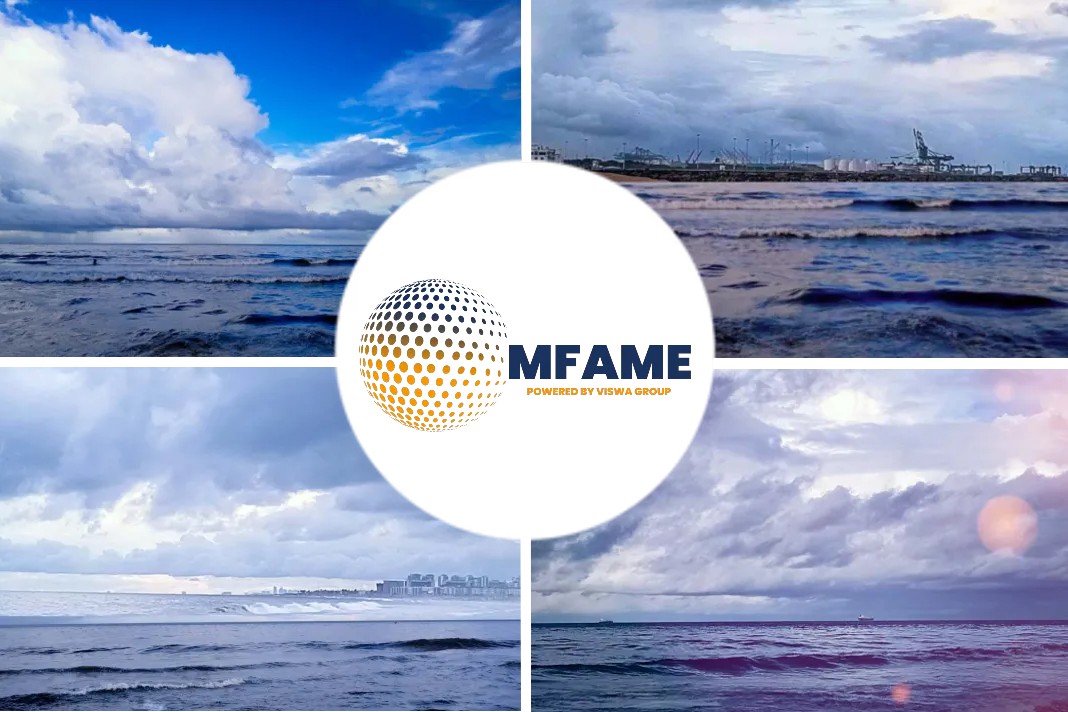
- In the quest to reduce emissions from operations and comply with the ever stricter regulatory framework, maximising vessel utilisation is one of the keys to success.
- Meriaura, a Finnish firm, reduced its ships’ emissions by 11.2% in 2022 by minimising ballast trips and improving port operations.
- The business stated that bulk fleet emissions per tonne of cargo per nautical mile reduced by 7.8% and deck cargo ships by 20.6 percent.
A Project Cargo Journal speaks about Maximising vessel utilisation is key to reducing emissions.
Meriaura developing in-house monitoring software
The biggest source of emissions for a shipping company is ship fuel. Meriaura therefore closely monitors ship emissions and relates them to the transport work performed.
During 2021, the company developed software for monitoring CO2 emissions and a monitoring system for the entire fleet. Emissions per ton of transported cargo per nautical mile, or ‘tonne mile’ in short, was selected as the most reasonable monitoring unit.
“Data for the entire fleet has now been collected for two whole years, and we can say with great satisfaction that we have significantly exceeded our annual emission reduction goal of four percent for 2022,” says Beppe Rosin, CEO of Meriaura. “What makes me very proud, is that at the same time, Meriaura was able to grow and make a very good financial result, which emphasizes the importance of the achievement, as emissions usually increase in times of high market activity.”
Bulk fleet
The tonne-mile emission was reduced by 7.8 percent for the bulk fleet. Success in the minimisation of ballast trips is based on the correct and carefully selected traffic area, as well as a suitable and homogeneous fleet, the company’s statement reads.
“Customers are in a key position, because they decide where the cargoes need to be taken. The customer’s batch sizes must also correspond as well as possible to the cargo capacity of the ships. Harmony in the customer portfolio creates synergy,” says Chief Operating Officer Mathias Landor.
The digital application Nautic Ai Fleetrange plays an important role in the planning and optimisation of ship programs. Competent onboard staff guarantees economical driving. Efficient port operations reduce the waiting time at ports and enable economic driving on sea legs, which saves fuel and reduces emissions, the statement reads.
Deck carriers’ emissions cut by 20.6 percent
Emissions from deck and special cargo vessels decreased by 20.6 percent compared to 2021. The marked improvement is partly explained by the fact that in 2021 the result was worsened by a long time charter period, that also made it difficult to plan the spot charter.
In 2022, expensive fuel encouraged driving with ecospeed, and the so-called “Virtual Arrival” was introduced, which means that the arrival is adapted to the readiness of the port to start cargo operations instead of rushing to wait, the company said.
The docking of both deck cargo ships in early 2022 also helped to lower the fuel consumption, as a sound coating of the hull reduces fuel consumption. The chartering profile has also changed from before: in 2022, deck cargo ships made more long-distance transports, for example to Spain, which is not part of Meriaura’s everyday traffic area. In this case, the share of ballast trips decreases in relation to carrying cargo.
Meriaura reaping rewards of operational efficiency
Meriaura has been working for years in the development of low-carbon sea transport. Last year’s result proves the work has been successful, the company said.
“Achieving the emission reduction targets, i.e. the continuous reduction of emissions also in the coming years, requires not only further improvement in operational efficiency, but also an increase in the use of renewable fuels. We have increased the use of our inhouse waste-based biofuel during the beginning of 2023,” says Beppe Rosin.
In addition to the EcoCoaster ships, the deck cargo ship Meri also uses biofuel again. When running on 100 percent biofuel, the fuel-related life-cycle emissions of sea transport are almost 98 percent lower compared to fossil fuels.
Ramona sold
The company has also recently sold its oldest and smallest vessel, Ramona, as part of the modernisation of its fleet.
The vessel was acquired for the company group at the end of 2021 and it was supposed to transport gypsum via the Saimaa Canal, operated by Meriaura. After the geopolitical situation put a stop to these plans the vessel was time-chartered to an external operator, the company said.
Did you subscribe to our newsletter?
It’s free! Click here to subscribe!
Source: Project Cargo Journal















